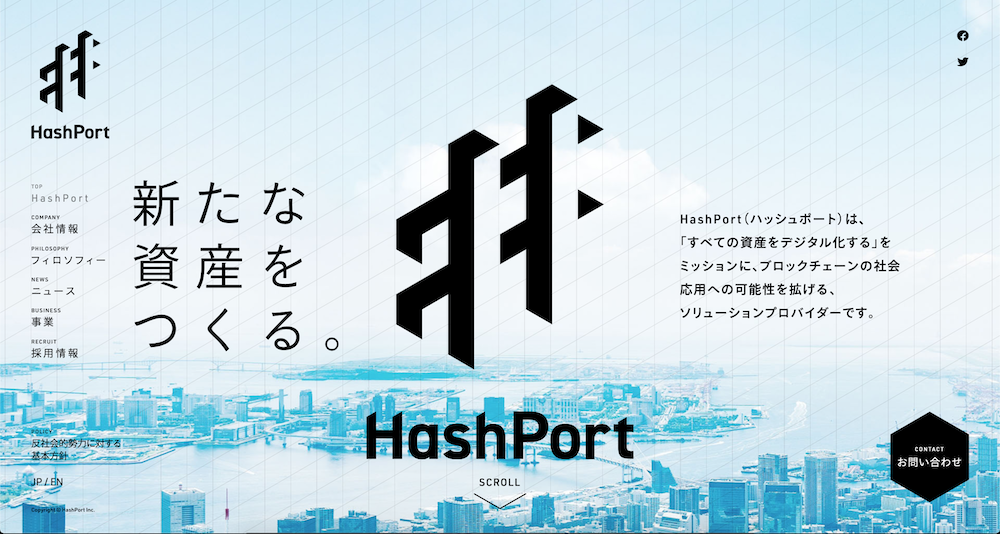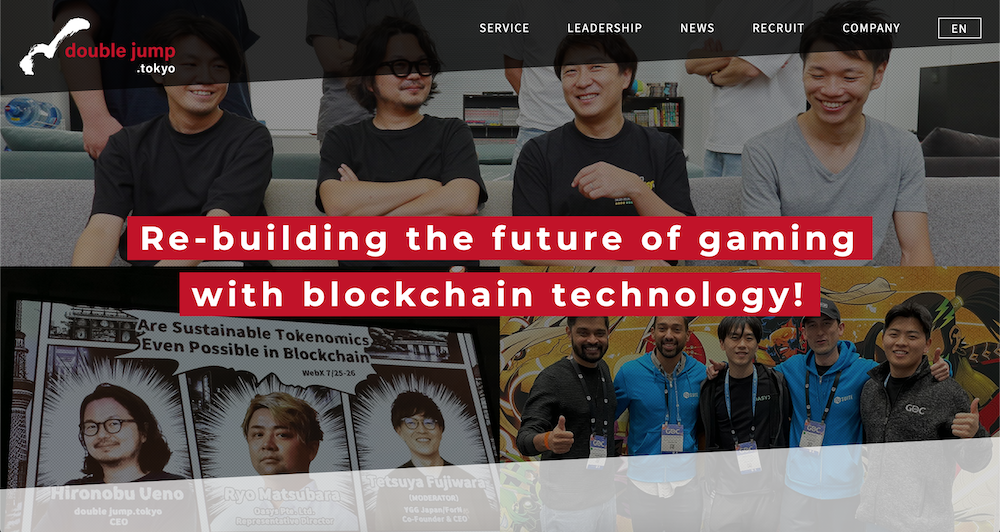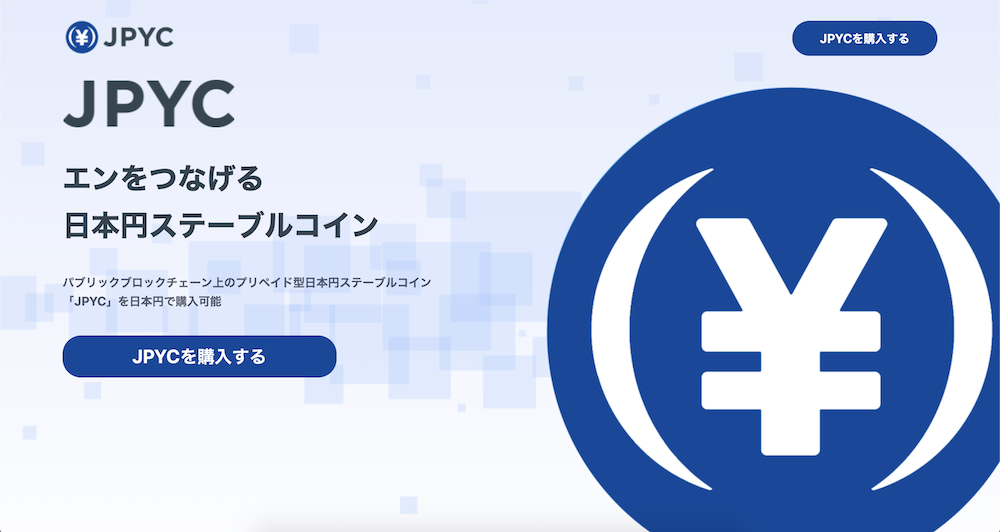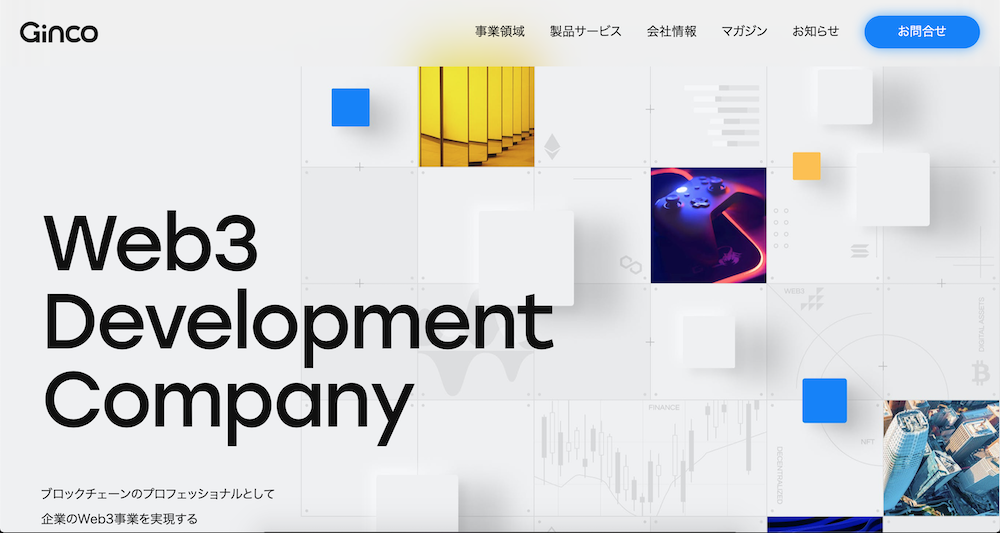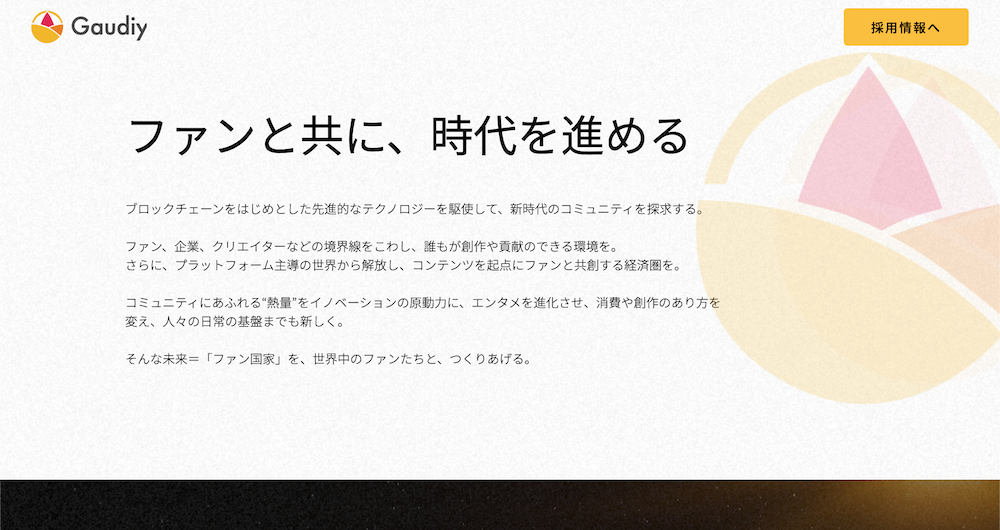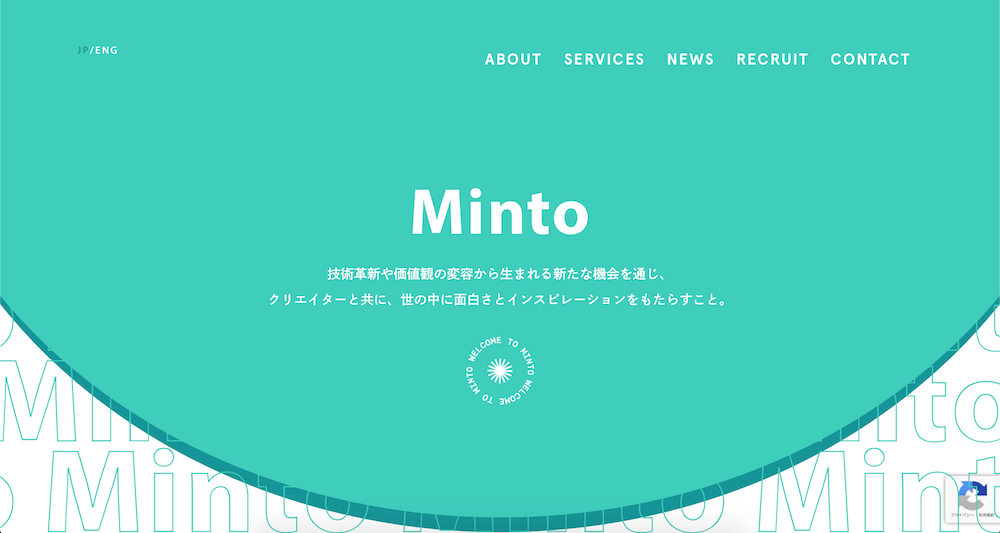As more and more companies enter the Web 3.0 space, the value of startups specializing in Web 3.0 that support this trend will increase further. These companies are likely to go public in the future and should be followed even now.
In this report, we have selected 10 leading Web 3.0 companies and researched their future prospects from our own perspective.
The presence of “Web 3.0 native” companies will become even more important in the future
In the “In-depth Study of 50 Japanese and U.S. Stocks” in Iolite Vol. 4, we introduced companies and groups involved in Web 3.0-related businesses and services. You should have learned that a number of well-known companies are currently focusing their attention on the Web 3.0 area and are actually promoting their businesses.
Naturally, not all of the listed companies involved in Web 3.0-related businesses and services have been covered in this report, so the number will increase further. Even if you are not familiar with NFT or crypto assets, you may find services provided by major companies in your neighborhood.
These services are supported by startups that have specialized in the Web 3.0 domain since their inception. Almost all of the companies currently listed on the stock exchange have not developed businesses related to the Web 3.0 domain from the beginning, and even if they shifted their corporate direction, it is unlikely that Web 3.0-related businesses would account for the majority of their sales at this point.
Therefore, the cooperation of so-called “Web 3.0 native” companies specializing in Web 3.0 is indispensable, and their presence is expected to become more important in the future.
Such “Web 3.0 native” companies must naturally be looking to go public in the future. In fact, there are many companies overseas that have listed their shares mainly in Web 3.0-related businesses. Even for existing traditional investors, these companies are easier to include in their portfolios for exposure, as they are more easily exposed to crypto assets than direct investments.
Of course, if market conditions for crypto assets deteriorate, stock prices can plummet. On the other hand, if market conditions are favorable, they may explode and generate large gains.
Which Web 3.0 companies to watch for future IPOs?
In Japan, there are no companies that have recently gone public mainly in Web 3.0-related businesses. However, there are a number of companies whose moment is approaching every second.
For example, HashPort, which is involved in businesses related to NFT and blockchain games, is a leading candidate for a company that is a native Web 3.0 company and may go public in the future. Currently working with MSI on SBTs (soulbound tokens), which cannot be bought, sold, or transferred, the company is expected to deepen its relationship in the future.
HashPort is also known for being the first IEO in Japan to raise funds through its proprietary token pallet token (PLT). The company is also actively involved in blockchain game production, and its presence is growing beyond the Web 3.0 domain.
Another strong candidate would be double jump.tokyo, which also has a track record in blockchain games and NFT. The company has developed blockchain games such as “My Crypto Heroes,” which has become the world's No. 1 blockchain game in terms of transaction volume, and also provides asset management services for businesses.
Currently, the company is focusing on the use of the game-specific blockchain Oasys, and is in an important position in the Japanese blockchain gaming space.
The keyword that both HashPort and double jump.tokyo have in common is “games. With many of Japan's leading game companies now developing blockchain games, many are calling for games to be the driving force behind Japan's Web 3.0. The two companies, in particular, have been working with an increasing number of major companies and have a proven track record, which should pave the way for an IPO by establishing a more stable business foundation.
In the crypto asset area, bitFlyer and Coincheck have the potential to go public.
The company's founder, Yuzo Kano, who has long expressed interest in going public, has returned as president, and this should accelerate bitFlyer's move. bitFlyer has had four presidential changes in the past three years, and the company urgently needs to solidify its internal foundation first.
In addition, the market for crypto assets has been deteriorating, and the company's performance has not been good, so it will probably take some time before it can list its shares.
On the other hand, Coincheck is already moving toward a stock listing, aiming for a SPAC listing on NASDAQ through a merger with Thunder Bridge Capital Partners IV. The initial plan was to list by the end of 2023, but the time frame has been extended.
Coincheck's parent company, Monex, places importance on the crypto asset business, and the company intends to expand its services and stabilize its customer base through the listing.
Other companies with potential for further growth include JPYC, which offers the Japan-linked stable coin JPYC, and Ginco, one of the leading wallet companies in Japan.
JPYC is aggressively acquiring licenses to focus on payments, and if its recently announced payment service, “JPYC PAY,” gains traction, it may accelerate its move toward a stock market listing.
Ginco's value as a company will inevitably increase as demand for crypto assets and NFTs increases, so the company will first need to improve market conditions and build on its track record accordingly.
HIKKY and Gaudiy, which are strengthening their ties with major players, are also noteworthy.
HIKKY is developing its metaverse business under the slogan of “turning 100 cities around the world into a metaverse,” and is building up a track record in VR events. In particular, HIKKY's metaverse is highly popular, with more than 1.2 million visitors to the Virtual Market, which is positioned as the world's largest VR event.
The Metaverse temporarily experienced a boom when Meta announced that it would focus on the Metaverse, but the reality is that the Metaverse is not currently attracting much attention. However, companies that steadily advance their business during such a period will later gain credibility and may become industry leaders when the boom comes again.
Gaudiy, a company that creates fan communities that incorporate Web 3.0 elements, is expanding its business by focusing on IP, which is one of Japan's strengths. In addition to receiving investment from Sony, KDDI, and others, Gaudiy plans to develop its services together with Sanrio, which has strong IP, and may go public at a very early date, depending on developments.
Minto and StartBurn, which are expanding their business centered on NFT, which is essential for mass adoption of Web 3.0, are also companies that have the potential for an early IPO, depending on industry trends.
Minto's NFT of “Usagyun! which was developed in partnership with LINE, has recorded approximately 300,000 downloads. The company has also developed a metaverse utilizing popular IPs such as “Fist of the North Star” and “Captain Tsubasa,” and if these businesses are successful, the company may accelerate its move toward an IPO.
Focusing on digital art, StartBurn is building an infrastructure that will enable the verification of authenticity of artworks. In recent years, the demand for art-related NFTs has declined compared to the boom years, but this does not mean that the future of digital art or its demand is declining.
The technology to prove authenticity, which has become an issue in art, will definitely be needed in the future, so the future trends of the industry should attract attention.
What to do now in anticipation of future listings
It is unlikely that any of these companies will go public anytime soon, as it will depend greatly on the market for crypto assets and the demand for NFTs and metaverse. Therefore, the first step should be to understand what these companies are doing now and how they are expected to develop in the future.
This section introduces the future prospects and characteristics of the companies named in this report. We hope you will find it useful.
The data presented here is based on some of the information available on official and industry association websites as of September 1, 2011.
10 unlisted Web 3.0 companies of note
Ten leading Web 3.0 companies are selected based on the editorial department's original viewpoint. The future outlook is also explained.


